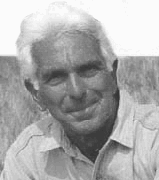Articles by Dan Short
Insight on Demand
Although I do not consider insight to be the most important component in therapy, it can be very helpful when it occurs. I conduct therapy from a problem-solving perspective, which is based on the assumption that people will live happier more fulfilled lives when they are able to function as capable problem solvers. If you […]
Utilization: Concept #1
During a recent meeting of the Milton H. Erickson Institute of Phoenix, Marilia Baker turned to me and said, “Don’t you think that just as ‘suggestion’ is the golden rule of hypnosis, ‘utilization’ is the golden rule of Ericksonian hypnosis?” She then proposed that in Ericksonian hypnosis these two concepts are conjoined. Indeed, utilization itself […]
The Most Important Skill in Therapy
If there is any single skill that might be used to summarize what the most effective Ericksonian therapists are able to do really well, it would be the general ability to connect with others in deep and compelling ways. Whether you are describing the therapist’s use of effective communication, interpersonal flexibility, skillful observation, or love […]
The Trans-Mental and Trans-Temporal Problem Solver
I just recently delivered a talk at the 2016 Brief Therapy Conference in San Diego and made a promise to my audience that I would send a one page summary of the talk and attach a link to the slides, which can be found at my website. Milton Erickson often warned his students of the […]
Can You Be Like Erickson?
For my keynote address at the Erickson Congress in Puerto Vallarta, I shared a memorable experience when I was confronted with the urgent needs of a former patient of Milton Erickson. The man was experiencing a full-blown psychotic episode. He had the symptoms of paranoid schizophrenia and was absolutely insistent that he must “find Erickson” […]
Why not fix all of your problems?
During my earliest days of studying Milton Erickson’s work, there were many fascinating premises which I could not understand. One of these was his warning that you need to leave some small component of the clinical problem in place. In other words, it is a mistake to strive for full clinical success (to learn more […]
Is Hypnosis Compatible with Non-Directive Process Work?
Throughout life, we find ourselves forced to make choices, “Do I choose A, or do I choose B?” And in most instances, it is a false dilemma. Dichotomous reasoning leads us to think, “If I do one, I cannot do the other.” Yet, often, we can do both. This is why Ericksonian practitioners are able […]
Altering Mindsets in Addition to Altering States of Consciousness
Those who use hypnosis for clinical problem solving are often trained in the observation and management of states of consciousness. While changes in consciousness can help produce new opportunities for learning and performance on therapeutic tasks, it is a change in mindset that governs the overall response of a person to his or her life. When […]
Why So Many Tattoos?
There are three kinds of people in the world: those who would never get a tattoo, those who after a couple glasses of wine in an artsy district say to themselves, “What the heck,” and then there are those who LOVE tattoos!
Use-Oriented Thinking
There is a type of thinking that is so deeply ingrained within Western culture that it seems the only way to think. In science-based education we are taught to advance toward defined outcomes by means of goal-oriented thinking. This type of thinking is a skill that enables us to improve our circumstances by setting goals, […]

 BOL: I hope our conversation will focus on the how-to of intervening in order to enhance the performance of organizations. You are a master of that art, but your most important work has focussed elsewhere: on understanding the nature of the organization,...
BOL: I hope our conversation will focus on the how-to of intervening in order to enhance the performance of organizations. You are a master of that art, but your most important work has focussed elsewhere: on understanding the nature of the organization,...  BOL: Alfred Adler’s name is better known to today’s therapists than are his ideas and methods. Your dedication to this body of work must be based on the belief that contemporary practice is diminished because Adler’s contributions are not...
BOL: Alfred Adler’s name is better known to today’s therapists than are his ideas and methods. Your dedication to this body of work must be based on the belief that contemporary practice is diminished because Adler’s contributions are not...